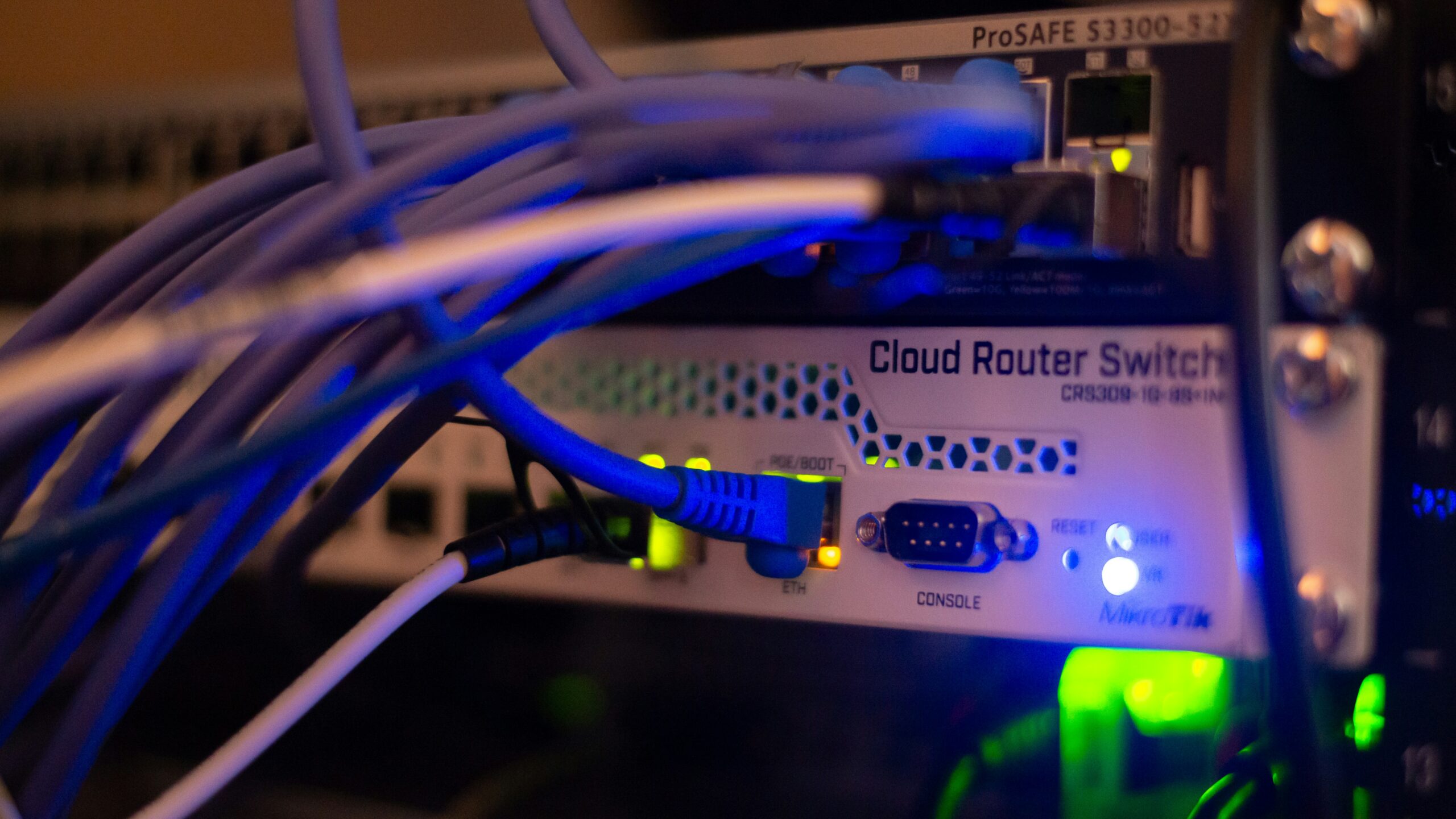Introduction: What Is an Example of a MSP Service?
In today’s digital age, businesses rely heavily on technology to operate efficiently. However, managing and maintaining IT infrastructure can be complex and time-consuming. This is where managed service providers (MSPs) come in. MSPs offer a range of IT services on an ongoing basis, allowing businesses to outsource their IT needs and focus on their core competencies.
So, what is an example of a MSP service? Some examples of managed services are: network monitoring, cybersecurity, data backup, and software updates. Now, let’s delve deeper into the specifics of what constitutes an example of an MSP service and how it can benefit businesses.
In this blog, we will discuss what is managed IT, benefits of managed services, and the types of managed services available. Then, we’ll discuss how to best choose a MSP.

What Is Managed IT?
Managed IT services encompass a range of comprehensive solutions designed to handle a company’s IT needs efficiently and proactively. Essentially, companies outsource the management and maintenance of their IT systems and infrastructure to a specialized team of professionals.
Managed IT services include tasks such as network monitoring, cybersecurity management, data backup and recovery, software updates, and help desk support. By outsourcing these responsibilities to an MSP like K3 Technology, businesses can benefit from improved efficiency.
IT Managed Service Providers vs In-House IT vs Break/Fix Models
Managed IT services provided by MSPs offer distinct advantages over in-house IT departments and the traditional break/fix model.
While in-house IT teams are dedicated solely to the needs of one company, MSPs serve multiple clients, leveraging economies of scale to provide cost-effective solutions. Additionally, MSPs employ specialized expertise across various IT disciplines, ensuring comprehensive coverage for their clients.
Moreover, the break/fix model involves addressing IT issues as they arise, leading to unpredictable costs and downtime. Managed services, on the other hand, take a proactive approach, aiming to prevent problems before they occur through continuous monitoring and maintenance.
By partnering with an MSP like K3 Technology, businesses can enjoy the benefits of a dedicated IT team without the overhead costs of hiring and training in-house staff. Moreover, the proactive nature of managed services helps drive business success.
Managed Services Benefits
Partnering with an MSP like K3 Technology can provide businesses with these valuable benefits:
- Expertise: Access to a team of skilled professionals with specialized expertise in various IT disciplines.
- Cost-Effectiveness: Lower IT costs compared to maintaining an in-house IT department.
- Proactive Maintenance: Continuous monitoring and proactive maintenance to prevent IT issues before they occur.
- Scalability: Ability to easily scale IT resources up or down based on business needs.
- Enhanced Security: Implementation of robust cybersecurity measures to protect against cyber threats.
These benefits ensure smoother IT operations and provide greater peace of mind.

Real-World Example of MSP Service
In a real-world scenario, let’s consider a financial services firm that partners with a Managed Service Provider (MSP) for its IT needs.
Let’s say this firm specializes in providing investment advisory services to its clients. Thus, it relies heavily on technology to manage financial data, execute trades, and communicate with clients. By engaging with an MSP, the financial services firm gains access to a range of IT services tailored to its specific needs.
First, the MSP conducts a thorough assessment of the firm’s existing IT infrastructure, identifying areas for improvement and potential vulnerabilities. Transitioning to a managed IT model, the firm benefits from continuous network monitoring and proactive cybersecurity measures. These service safeguard sensitive financial data from cyber threats.
Moreover, the MSP implements a robust data backup and recovery solution. This solution ensures that the firm’s critical financial data is securely backed up and easily recoverable in the event of hardware failure or data loss. Additionally, the financial services firm leverages the cloud management services offered by the MSP to optimize its operations and improve scalability. By migrating certain IT resources to the cloud, the firm can access its data and applications from anywhere, at any time, while also reducing infrastructure costs and increasing flexibility.
Furthermore, automation plays a significant role in streamlining the firm’s workflows and enhancing efficiency. The MSP helps implement automated processes for routine tasks such as client account management, transaction processing, and reporting. This frees up valuable time and resources for the firm’s staff to focus on higher-value activities.
In summary, by partnering with an MSP, the financial services firm benefits from a comprehensive suite of IT services tailored to its specific requirements. The MSP enables the firm to operate more securely, efficiently, and competitively in today’s digital landscape.

Types of Managed Services
These managed services, provided by reputable MSPs like K3 Technology, help businesses maintain a secure and efficient IT environment:
- Network Monitoring and Management: Constant monitoring of network infrastructure to ensure optimal performance and identify potential issues.
- Cybersecurity Management: Implementation of robust security measures to protect against cyber threats such as malware, ransomware, and phishing attacks.
- Data Backup and Recovery: Regular backups of critical data to prevent loss in the event of hardware failure, human error, or cyberattack, with quick recovery options.
- Cloud Management: Management of cloud infrastructure and services, including deployment, monitoring, optimization, and security of cloud-based resources.
- Help Desk and Technical Support: Access to skilled technicians for troubleshooting and resolving IT issues, providing assistance to users when needed.
- Automation: Implementation of automated processes and workflows to streamline repetitive tasks, improve efficiency, and reduce human error.
Through the expertise and support of a MSP, businesses can benefit theses services.

The Power of Network Infrastructure IT Management Services
Network infrastructure IT management services encompass a range of solutions aimed at ensuring the smooth operation and security of a company’s network infrastructure. One key aspect of network infrastructure IT management is continuous monitoring, which involves actively monitoring network traffic, performance metrics, and security events to identify and address potential issues in real-time. In the event of network disruptions or security breaches, MSPs offer rapid response and troubleshooting support to minimize downtime and mitigate risks.
Additionally, managed IT providers offer proactive maintenance activities such as software updates, patch management, and configuration optimization to keep the network running smoothly and securely. Furthermore, network infrastructure IT management services involve optimization efforts to maximize the efficiency and performance of the network. Optimizing networks ensures that resources are utilized effectively to meet the organization’s needs.
By outsourcing network infrastructure IT management to an experienced MSP like K3 Technology, businesses can ensure the reliability, security, and performance of their network environments, allowing them to focus on their core operations and strategic objectives.

Building a Strong Defense with MSP Cybersecurity Services
Cyber threats are becoming increasingly sophisticated, making cybersecurity services crucial. These services include a range of proactive measures aimed at protecting a company’s digital assets, data, and networks from unauthorized access, breaches, and cyber attacks.
One key component of cybersecurity management is risk assessment, which involves identifying potential vulnerabilities and threats to the organization’s IT infrastructure. Through regular assessments and audits, MSPs can pinpoint weaknesses and areas of concern, allowing them to implement targeted security measures to mitigate risks and strengthen defenses. Robust security measures include firewalls, antivirus software, intrusion detection systems, and encryption protocols to safeguard against various cyber threats. These solutions are continuously monitored and updated to ensure they remain effective against emerging threats.
In the event of a security incident or breach, MSPs provide rapid response and incident management services to contain the threat, minimize damage, and restore operations swiftly. By partnering with an experienced MSP like K3 Technology, businesses can benefit from comprehensive cybersecurity management solutions tailored to their specific needs.

Ensuring Data Resilience: The Importance of Backup and Recovery Solutions
Data backup and recovery involves creating copies of important data and storing them securely to prevent loss in the event of hardware failure, data corruption, accidental deletion, or cyberattack. One key aspect of data backup is regularity, where MSPs establish automated backup schedules to ensure that data is backed up consistently and without manual intervention. These backups are typically stored both onsite and offsite, providing redundancy and resilience against various scenarios such as natural disasters or physical damage to hardware.
Moreover, data recovery is equally important, allowing businesses to retrieve lost or corrupted data from backups quickly and efficiently. MSPs implement robust recovery processes and tools to facilitate the restoration of data in the event of an incident. All of these services minimize downtime and disruption to business operations. By partnering with an experienced MSP like K3 Technology, businesses can protect the continuity and integrity of their data assets.

Maximizing Efficiency with Expert Cloud Management
Cloud computing services by MSPs involve the management of cloud-based infrastructure, platforms, and applications to ensure they operate efficiently, securely, and cost-effectively. One key aspect of cloud management is deployment, where MSPs assist businesses in migrating their IT resources and applications to the cloud. This involves selecting the right cloud service provider and configuring cloud environments to meet the organization’s needs.
Additionally, cloud management includes ongoing monitoring and optimization to ensure that cloud resources are utilized effectively and that performance meets expectations. MSPs leverage tools and techniques to monitor cloud performance, identify bottlenecks, and optimize resource allocation to improve efficiency and reduce costs. Furthermore, cloud management encompasses security measures to protect cloud-based data and applications from cyber threats. MSPs implement robust security controls, encryption protocols, and access management policies to safeguard sensitive information stored in the cloud.
By partnering with an experienced MSP like K3 Technology, businesses can benefit from comprehensive cloud management solutions tailored to their specific requirements, allowing them to harness the full potential of cloud computing while minimizing risks and maximizing performance.

The Role of Help Desk Support in Remote Managed Services
Help desk support is a crucial service provided by managed service providers (MSPs) like K3 Technology to assist businesses with their IT needs and resolve technical issues efficiently. Essentially, help desk support involves providing frontline assistance to users who encounter IT problems or require technical guidance. This assistance can be delivered via various channels such as phone, email, chat, or a dedicated ticketing system.
One key aspect of help desk support is responsiveness, where MSPs strive to address user inquiries and issues promptly to minimize downtime and disruption to business operations. Help desk technicians are trained to troubleshoot a wide range of IT issues, from software glitches and hardware malfunctions to network connectivity problems and user errors. Additionally, help desk support includes providing guidance and instructions to users on how to use IT systems and software effectively. This helps empower users to resolve minor issues on their own and improves overall productivity.
By partnering with an experienced MSP like K3 Technology, businesses can benefit from smooth IT operations and user satisfaction.

How Automation Transforms Business Processes
Automation is a key service offered by managed service providers (MSPs), like K3 Technology, to streamline and optimize business processes. Essentially, automation involves using technology to perform repetitive tasks and workflows automatically, without the need for manual intervention.
One of the main benefits of automation is increased efficiency, as it allows businesses to accomplish tasks faster and with fewer errors. For example, routine tasks such as data entry, file transfers, and software updates can be automated, freeing up employees’ time to focus on more strategic activities. Additionally, automation helps improve consistency and accuracy by reducing the risk of human error. By implementing automation, businesses can also enhance scalability, as automated processes can easily scale up or down to accommodate changes in workload or demand. Furthermore, automation can contribute to cost savings by reducing the need for manual labor and increasing productivity.
Overall, automation is a valuable tool for businesses looking to streamline operations, improve efficiency, and remain competitive in today’s digital landscape.
Frequently Asked Questions
RELATED TO: “What Is an Example of MSP Service”
What is meant by managed IT services?
Managed IT services involve outsourcing the management and maintenance of a company’s IT systems and infrastructure to a specialized provider, such as K3 Technology. This includes tasks such as network monitoring, cybersecurity management, data backup and recovery, software updates, and help desk support.
What does an IT managed services company do?
An IT managed services company, like K3 Technology, provides a comprehensive suite of IT services tailored to the specific needs of businesses. This includes proactive monitoring and management of IT systems, cybersecurity measures to protect against cyber threats, data backup and recovery solutions, and help desk support for troubleshooting and resolving IT issues.
By partnering with an IT managed services company, businesses can benefit from expert IT support and services without the need to maintain an in-house IT department.
What services are offered by MSP?
Managed Service Providers (MSPs) offer a range of services to help businesses manage their IT needs efficiently. Some common services provided by MSPs include network monitoring, cybersecurity management, data backup and recovery, cloud management, help desk support, and automation.
These services are tailored to the specific needs of businesses and are designed to improve IT infrastructure, enhance security, and increase operational efficiency.
What is the difference between MSP and IT services?
Managed Service Providers (MSPs) and traditional IT services providers offer different approaches to managing IT needs. While traditional IT services providers typically offer on-demand support and project-based services, MSPs provide ongoing, proactive management of IT infrastructure and systems.
MSPs often use a subscription-based model to deliver a comprehensive suite of IT services, including monitoring, maintenance, security, and support, for a predictable monthly fee. This proactive approach helps prevent IT issues before they occur, minimizing downtime and disruption to business operations.
Why do companies need an MSP?
Companies need Managed Service Providers (MSPs) to help them effectively manage their IT infrastructure and systems. MSPs provide expertise, resources, and support to handle the complexities of modern IT environments, allowing businesses to focus on their core objectives.
By outsourcing IT management to an MSP like K3 Technology, companies can benefit from proactive monitoring, robust cybersecurity measures, reliable data backup and recovery solutions, efficient cloud management, responsive help desk support, and streamlined automation. This enables businesses to improve productivity, enhance security, reduce costs, and stay competitive in today’s digital landscape.
How to Choose the Right Technology Service Provider
When choosing a technology service provider, several factors should be considered to ensure that you select the right provider for your business needs. Here are some key factors to keep in mind:
- Expertise and Experience: Look for an MSP with a proven track record and expertise in providing IT services.
- Range of Services: Consider the breadth and depth of services offered by the MSP to ensure they can meet your specific requirements.
- Scalability: Ensure that the MSP can scale their services to accommodate your business growth and changing needs.
- Security Measures: Assess the MSP’s security protocols and measures to safeguard your data and infrastructure from cyber threats.
- Support and Response Time: Consider the level of support provided by the MSP and their response time to resolve issues promptly.
- Pricing and Contracts: Review pricing structures and contract terms to ensure they align with your budget and business goals.
By carefully considering these factors, you can select a MSP that best fits your business needs and helps you achieve your IT objectives. Partnering with an experienced MSP like K3 Technology can provide you with the expertise and support needed to navigate the complex landscape of IT services and solutions.

Conclusion: What is an Example of a MSP Service?
All in all, managed services play a crucial role in helping businesses streamline their IT operations and enhance efficiency. By outsourcing IT management to a specialized provider like K3 Technology, businesses can benefit from a range of valuable services tailored to their specific needs. These services include network monitoring, cybersecurity management, data backup and recovery, cloud management, help desk support, and automation.
With expert support from an MSP, businesses can optimize their IT infrastructure, improve security, reduce downtime, and focus on their core objectives. Partnering with an experienced MSP like K3 Technology enables businesses to stay competitive in today’s digital landscape and achieve greater success.






